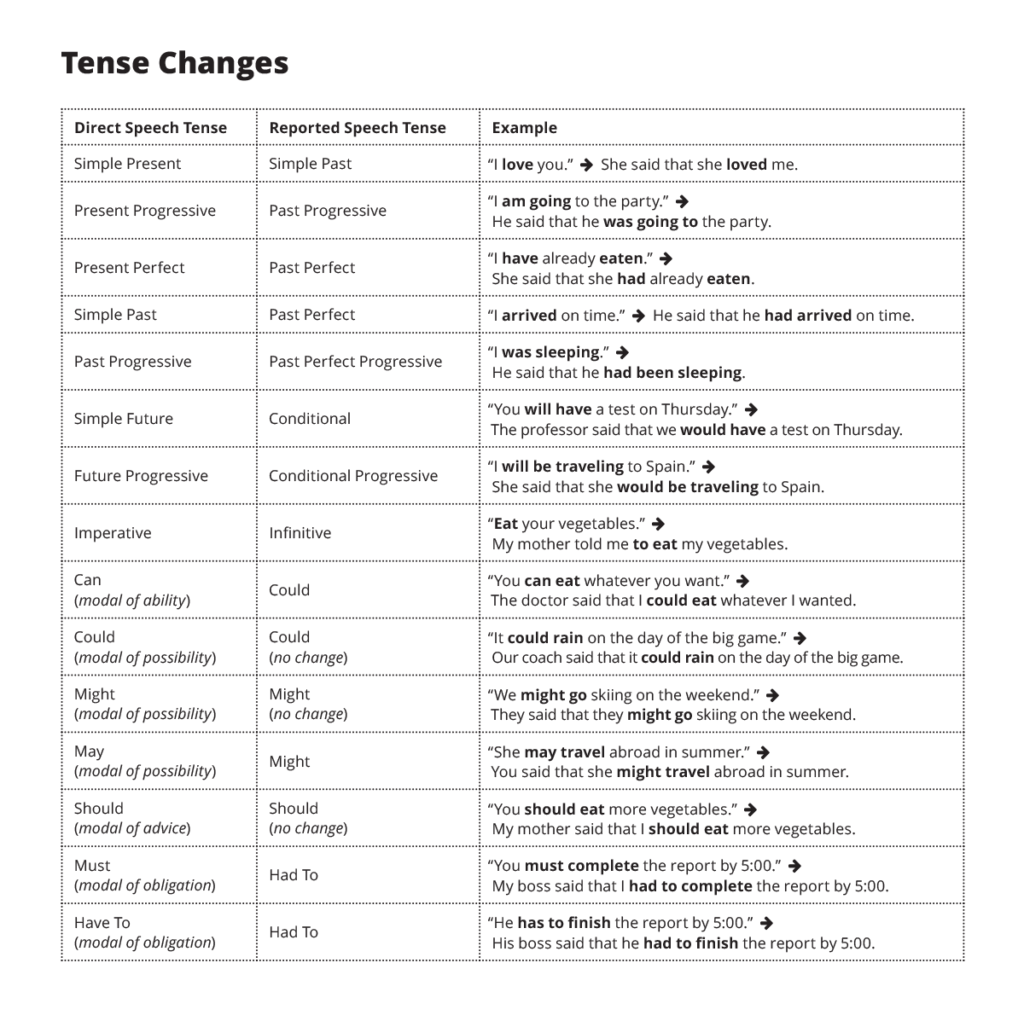Share this post
Teacher: Reported speech is easy to learn!
Student A: What did our teacher say yesterday?
Student B: She said that reported speech was easy to learn.
Direct speech (teacher, above) is used for dialogues and quoted speech, while reported speech (student B, above) is used at a later time to report what someone said. In English, we use reported speech (also known as indirect speech) often in speaking and writing to be more polite, to add information, or to form embedded questions. This grammar target can be tricky for students to learn because they have to remember to change the verb tense. Never fear! We’ve got common tips and tricks to help your English language learners remember how to use reported speech. Providing them with a reference chart like the one below will also help!
Tips & Tricks
#1
Remember to back it up! Most of the verb tense changes from direct to reported speech involve a move backward into the past.
- simple present becomes simple past
- simple past becomes past perfect
- present progressive becomes past progressive, etc.
#2
The relative pronoun that used after the reporting verb is optional, but commonly used. There is no difference in meaning.
- John said that he would help me with my homework.
- John said he would help me with my homework.
#3
Use said without a direct object.
- My sister said that she was tired.
- My sister said me that she was tired.
#4
Use told with a direct object.
- They told me to check in at noon.
- They told to check in at noon.
#5
A simple present verb can be reported in the simple present instead of the past when the action has just occurred or if the statement is a well-known fact.
- He said that he loves me.
- He always tells me that he loves me.
#6
Sometimes, when making predictions, the reporting verb is in the simple future and the other clause is in the simple present.
- Maybe my roommate will tell them that she is too sick to go to the party.
#7
In reporting imperatives (commands), remember to use the correct negative infinitive form (not + infinitive).
- My parents told me not to run by the pool.
Chart

Grammar & Usage Resources – Reported Speech
Related
- Direct & Reported Speech – Grammar Lesson
- Reported Speech – Grammar Resource
- Say Vs. Tell – Blog Post
- Embedded Questions – Grammar Lesson
- Embedded Questions – Grammar Resource
- Embedded Questions – Blog Post
Comments (2)
Shahin N.(Teacher)
June 13, 2023 at 8:09 pm

Tanya Trusler(Author)
June 14, 2023 at 7:18 pm
Indira N.(Student)
January 27, 2024 at 1:57 am

Tanya Trusler(Author)
January 29, 2024 at 7:54 pm
